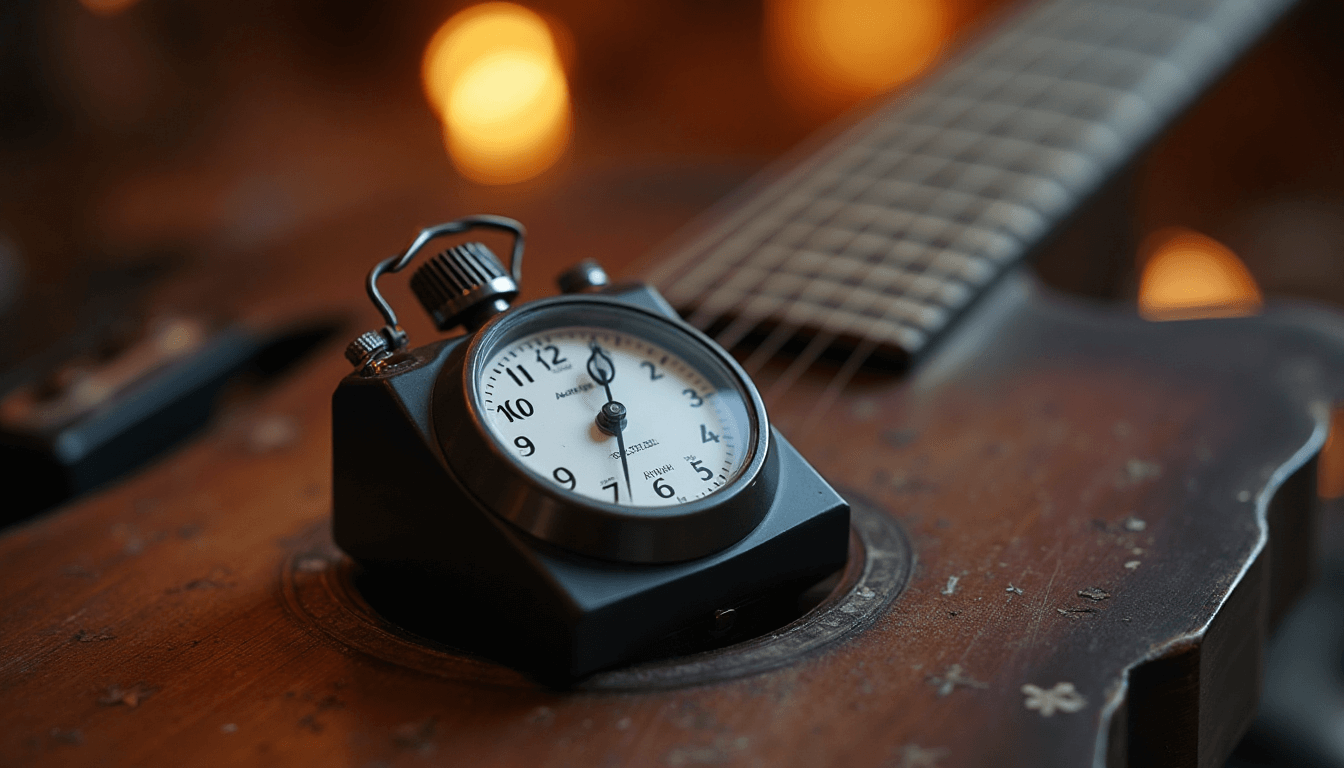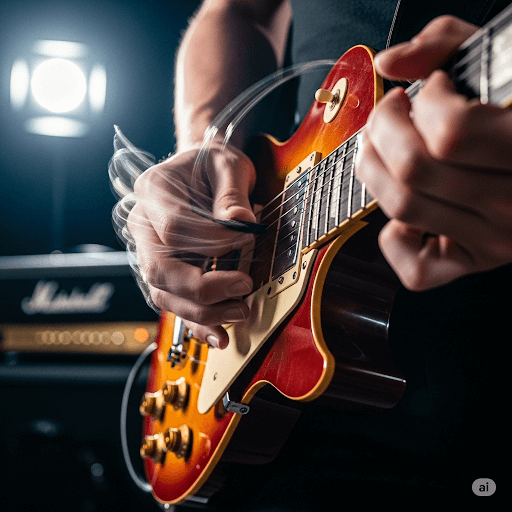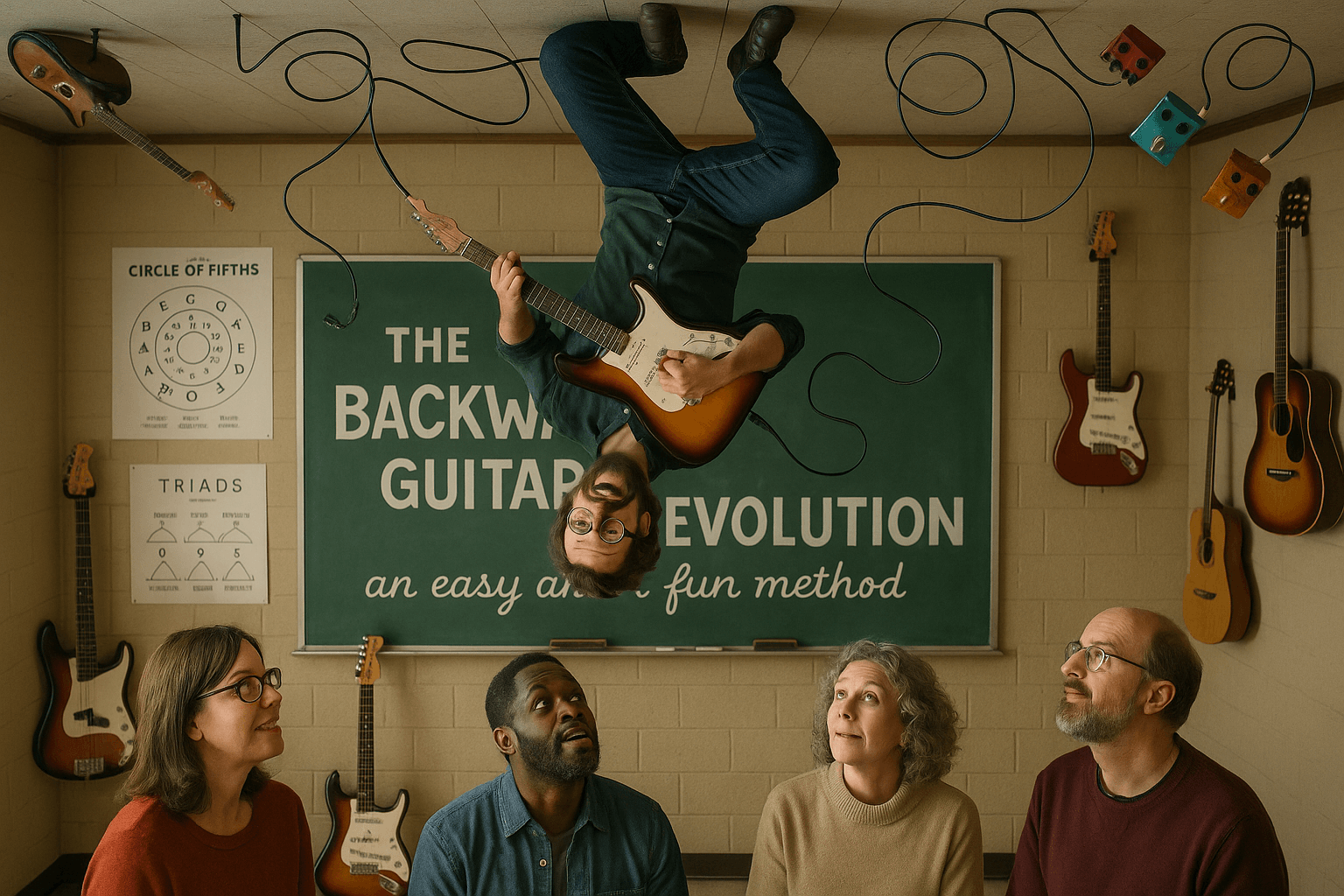Sep 06, 2024 04:48:45 PM
A Beginner's Journey: What to Know Before Buying Your First Guitar

Hey there, future guitar hero! So, you’ve decided to dive into the awesome world of guitar playing. Fantastic choice! Whether you’re dreaming of strumming around a campfire, shredding on stage, or just enjoying some personal jam sessions, the first step is picking the right guitar. It’s like picking out a new travel buddy who’s going to accompany you on a fantastic musical journey. But wait—before you rush off to your nearest music store, here’s a fun and feel-good guide to help you find your perfect guitar as companion.
Understanding Different Types of Guitars
Embarking on the journey as a beginner guitarist is exhilarating, but the first decision you face is selecting the type of guitar that best aligns with your musical ambitions. You'll encounter three main types: acoustic, electric, and classical. Acoustic guitars are perfect for those who are drawn to genres like folk, country, or singer-songwriter styles. They come with steel strings and produce a bright, full-bodied sound.
On the other hand, Electric guitars require an amplifier to produce sound and are typically favored by those wanting to dive into rock, blues, or jazz. Electric guitars are often easier on the fingers, making them attractive to many guitar newbies.
Lastly, Classical guitars, equipped with nylon strings, offer a softer sound and are ideal for playing classical music or flamenco. As a new guitar learner, understanding these basics will guide you in choosing the right instrument, setting a solid foundation for your musical journey.
Choosing the Right Size and Fit
Choosing the right size and fit is a crucial step when buying your first guitar, especially for beginner guitarists. Guitars come in various sizes, and selecting one that aligns with your body type and comfort level can greatly impact your learning experience.
For adults, a full-size guitar is often appropriate, but if you find yourself struggling to reach the fretboard comfortably, consider a 3/4 size or even a parlor guitar. These smaller instruments can provide a snug fit for those with shorter arms or smaller hands, ensuring you maintain proper playing posture.
Remember, comfort is key. When trying out different guitars, focus on how the neck feels in your hand and whether you can easily access all the notes. Investing time in finding the perfect fit will enhance your practice sessions and keep you motivated as a new guitar learner.
Try Before You Buy - Feel the Fretboard and Sounds Connection
Diving into the world of guitars can be overwhelming, but one key piece of advice for any guitar newbie is to try before you buy. The relationship between your fingers and the fretboard is highly personal, and feeling that connection is essential before making a purchase.
Visit a local music store and spend some time with different guitars. Notice how each fretboard feels under your fingers. Some might feel too wide, while others may fit just right. The tactile experience of pressing the strings and producing sound will give you invaluable insights.
Additionally, listen to the sound each guitar produces. Whether it's the warm resonance of an acoustic or the crisp clarity of an electric, your ears will guide you toward a guitar that resonates with your musical taste. This tactile and auditory exploration will ensure you choose the best guitar for your beginner guitarist journey.
Setting a Realistic Budget for Your First Guitar
Setting a realistic budget is a vital step in buying your first guitar. As a beginner guitarist, it's important to balance your enthusiasm with practical financial considerations. The good news is, you don't have to break the bank to find a quality instrument.
Consider starting with a budget of $200-$500. This range offers many options for new guitar learners without compromising on quality. Brands like Yamaha, Fender, and Epiphone provide reliable guitars that are perfect for beginners.
While it's tempting to go for the cheapest option, remember that a poorly made guitar can hinder your learning and sound quality. Investing in a slightly higher-priced model ensures durability and playability, making your practice sessions more enjoyable. Keep in mind that your first guitar is a stepping stone; as your skills improve, you can explore more advanced models.
Exploring Essential Guitar Accessories
As you step into the world of being a new guitar learner, you'll quickly realize that purchasing a guitar is just the beginning. Several essential guitar accessories can enhance your playing experience and keep your instrument in top shape.
First on the list is a sturdy guitar case or gig bag to protect your investment from scratches and dings. A tuner is another must-have accessory, helping you maintain perfect pitch, which is crucial for developing your ear. Picks, a strap, and a stand are also essential for comfortable practice sessions.
Don't overlook the importance of a metronome for keeping time and a capo for exploring different keys. Investing in these accessories will not only make your practice more effective but also extend the life of your guitar, ensuring your beginner guitarist journey is filled with harmony and joy.
Finding Resources and Support as a New Guitar Learner
Starting as a new guitar learner can feel like a solitary journey, but there's a whole world of resources and support available to guide you. Whether you're learning online or with a personal instructor, the key is to find a method that keeps you motivated and engaged.
Online platforms like YouTube, JustinGuitar, and Fender Play offer a plethora of tutorials and lessons tailored for beginner guitarists. Engaging with guitar forums and communities can also provide valuable advice from fellow enthusiasts.
Consider joining a local music class or group where you can connect with other guitar newbies. Sharing experiences and challenges can be inspiring and provide the encouragement you need.
Remember, progress may be slow at first, but with the right resources and support, your guitar journey will be rewarding. Embrace the learning curve, and soon you'll be strumming along with confidence.
Final Thoughts: Enjoy the Ride
Buying your first guitar is a big moment, and it should be a fun, enjoyable experience. Whether you go acoustic or electric, the most important thing is that you feel inspired to play. Remember, this is just the beginning of a fantastic journey—so take your time, do your research, and most importantly, choose a guitar that feels right for you.
Every legendary guitarist started where you are now—with their first guitar. So, go out there, find your perfect six-string companion, and start creating your own music magic. Happy guitar hunting, and here’s to many awesome jams ahead!

The 15-Minute Guitar Ritual That Transforms Beginner Guitarists without Endless Practice

Guitar Picking Mechanics: Master Speed and Dexterity Today

The Backwards Guitar Revolution: Why I Turned Traditional Teaching Upside Down